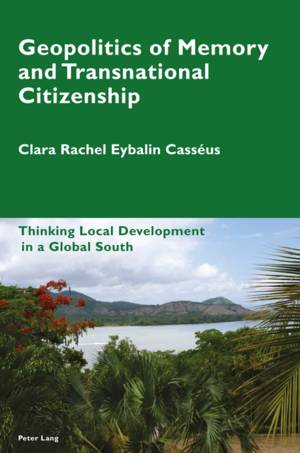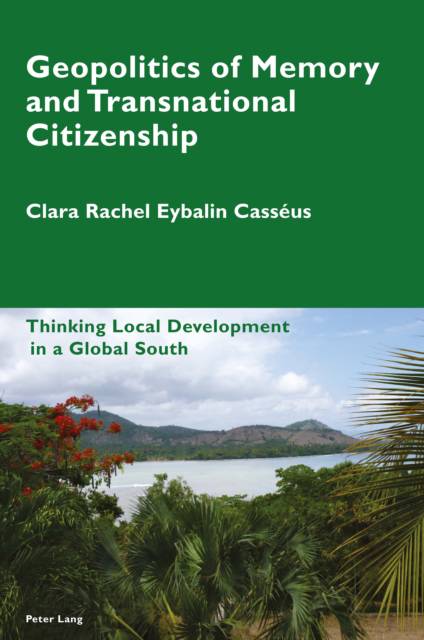
- Afhalen na 1 uur in een winkel met voorraad
- Gratis thuislevering in België vanaf € 30
- Ruim aanbod met 7 miljoen producten
- Afhalen na 1 uur in een winkel met voorraad
- Gratis thuislevering in België vanaf € 30
- Ruim aanbod met 7 miljoen producten
Geopolitics of Memory and Transnational Citizenship
Thinking Local Development in a Global South
Clara Rachel Eybalin CasséusOmschrijving
This book offers new perspectives on transnational citizenship, memory and strategies of development. Beginning with an exploration of belonging and cultural memory, the book turns to a series of case studies in order to examine the ways in which citizens actively engage with their state of origin through narratives of remembrance. In the Haitian case, community engagement is primarily a grassroots movement in spite of the early creation of a Ministry of Haitians Abroad (MHAVE). The Jamaican case, however, differentiates itself by having a top-down structure promoted by an administration that actively seeks to engage Jamaicans abroad by way of solidarity funds. By treating simultaneously two geopolitical entities, Francophonie and the Commonwealth, this study offers a unique, comparative perspective on a complex web of family networks, spiritual bonds and entrepreneurial cross-border practices at the core of a common Caribbean culture of resilience and self-reliance. The findings on the relationship between memory, citizenship and the State challenge the existing assumption that communities abroad become increasingly assimilated into the new society, whereas, in fact, the idea of a transnational citizenship has become increasingly prevalent. This evolution is enhanced by memory, which acts as a powerful dynamic engine to deconstruct citizenship while connecting beyond borders.
Specificaties
Betrokkenen
- Auteur(s):
- Uitgeverij:
Inhoud
- Aantal bladzijden:
- 248
- Taal:
- Engels
- Reeks:
- Reeksnummer:
- nr. 10
Eigenschappen
- Productcode (EAN):
- 9781787079786
- Verschijningsdatum:
- 28/11/2018
- Uitvoering:
- Paperback
- Formaat:
- Trade paperback (VS)
- Afmetingen:
- 147 mm x 224 mm
- Gewicht:
- 385 g

Alleen bij Standaard Boekhandel
Beoordelingen
We publiceren alleen reviews die voldoen aan de voorwaarden voor reviews. Bekijk onze voorwaarden voor reviews.









